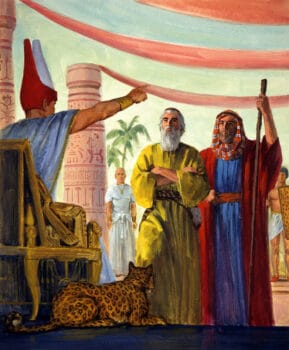Daily Lesson for Sunday 13th of July 2025
Following God’s orders, Moses goes to Pharaoh to begin the process in which he, Moses, would “bring My people, the children of Israel, out of Egypt” (Exodus 3:10, NKJV).
What was Pharaoh’s response to God’s demand, “Let my people go” (see Exodus 5:1-2), and what significance can be found in this response?
“Who is the Lord?” Pharaoh declares, not in any desire to know Him but, instead, as an act of defiance or even denial of this God, whom he admits that he does not know. “ ‘I do not know the Lord’ ” (NKJV), he says, almost as a boast.
How many people throughout history have uttered the same thing? How tragic, because, as Jesus Himself said, “And this is life eternal, that they might know thee the only true God, and Jesus Christ, whom thou hast sent” (John 17:3).
Egypt, with the pharaoh as king, is symbolic of a power that denies God’s presence and authority. It is an entity that stands in opposition to God, His Word, and His people.
Pharaoh’s next declaration that “I will not let Israel go” reveals even more this rebellion against the living God, further making Egypt a symbol, not only for the denial of God but for a system that fights against Him.
No wonder many saw this same attitude, millennia later, in the French Revolution (see also Isaiah 30:1-3 and Revelation 11:8). Pharaoh thought he was a god or the son of a god—a broad reference to a belief in one’s own supreme power, strength, and intelligence.
“Of all nations presented in Bible history, Egypt most boldly denied the existence of the living God and resisted His commands. No monarch ever ventured upon more open and highhanded rebellion against the authority of Heaven than did the king of Egypt. When the message was brought him by Moses, in the name of the Lord, Pharaoh proudly answered: ‘Who is Jehovah, that I should hearken unto His voice to let Israel go? I know not Jehovah, and moreover I will not let Israel go,’ Exodus 5:2, A.R.V. This is atheism, and the nation represented by Egypt would give voice to a similar denial of the claims of the living God and would manifest a like spirit of unbelief and defiance.”—Ellen G. White, The Great Controversy, p. 269.
|
If someone asked, Do you know the Lord? How would you respond? If yes, what would you say He is like, and why? |
 (0)
(0)



